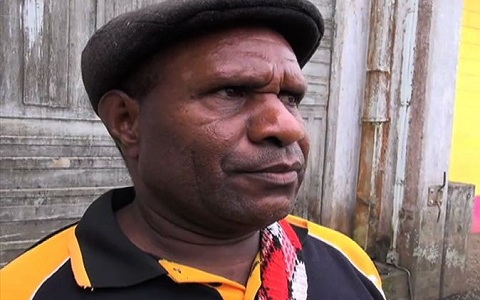An informal moneylender, Tyake Kaino used to work for FM Morobe as a cleaner until eight years ago he left his job and became a full time moneylender in Lae City.
“The paid me one hundred and sixty kina fortnightly,” he said.
On an average day he sees between five and ten customers who borrow between K50 and K1000.  In a week he makes between K200 and K500.
The businesses operate unregulated and untaxed with the lenders charging as much as 50 percent in interest.
“Government fortnight week I make close to K1, 500,” said Kaino.
Kaino is one of hundreds of moneylenders who operate outside of regulatory mechanisms set out bythe Papua New Guineanbsp;Central Bank and the internal revenue commission.
For the informal moneylender, tax laws don’t apply andthe laws governing banks have little effect.
Many ofthe transactions that happen are based on trust betweenthe lender andthe client.
Bankcards and personal identification numbers are handed over tothe lenders and held as security when a loan is given.
The lenders cater to a sector ofthe economy, which includes about one and a half million people who remain what financial institutions callthe unbanked.
They are people who have formal jobs and can’t get a loan or don’t have a bank account.
Late last month, financial institutions make efforts to capturethe largely untapped customer base.
The mover has come about through improverd communication technologies.


